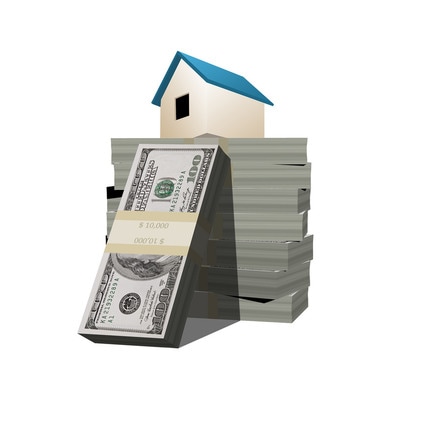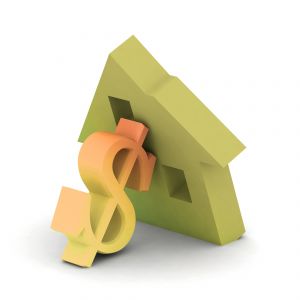- Home
-
Featured Listings
- Ojai Valley Homes for Sale >
- Ventura County Homes for Sale >
- Lots and Land for Sale >
- Commercial Properties for Sale >
- Commercial Properties for Rent >
-
Sold Properties
>
- Little Orchard Farms
- 1475 Buena Vista Street
- 474 Avenida de la Vereda
- 1084 Woodland Avenue
- 4239 Grand Avenue
- 910 Spring Street
- 775 Spring Street
- Frog River Ranch
- 75 High Street
- 405 West Ojai Avenue
- 135 Wormwood Street
- 921 Patricia Court
- 12523 Treeranch Road
- 755 Spring Street
- 10802 Oak Knoll Road
- 1205 Fierro Drive
- 1202 Loma Drive 122
- 104 East Warner Street
- 13382 East Sulphur Mountain Road
- 150 Monte Via
- 311 Shady Lane
- 906 Logan Avenue
- 620 Jordan Avenue
- 487 Montana Circle
- 701 Canada Street
- 1188 Fierro Drive
- 8577 Liveoak Avenue
- 10248 Ojai Santa Paula Road
- 1210 South La Luna Avenue
- 2899 Matilija Canyon Road
- 1114 Alviria Drive
- 106 East Eucalyptus Street
- 913 Gardner Avenue
- 214 Eucalyptus Street
- 709 Lemon Grove Avenue
- 60 Watkins Way
- 1330 South La Luna Avenue
- 350 Old Grade Road
- 9972 Creek Road
- 1923 Meiners Road
- 12605 Highwinds Road
- 240 Feliz Drive
- 11373 Puesta Del Sol
- 11311 Creek Road
- 1116 Del Nido Court
- 802 El Toro Road
- 131 West Oak View Avenue
- Lucky Q Ranch
- 291 Larmier Avenue
- 1577 Kenewa Street >
- 300 Del Norte Road
- 707 Mesa Drive
- 46 Olive Street
- 616 West Heather Street
- 805 Park Road
- 407 Tico Road
- 4569 Grand Avenue
- 209 South Ventura Street
- 10808 Creek Road
- 10864 Creek Road
- 1436 North Montgomery Street
- 562 Thomas Street
- 206 Mahoney Avenue
- 601 Canada Street
- 5180 Reeves Road
- 1923 South Hill Road
- Gateway Plaza
- 250 El Camino Drive
- 2451 Bonmark Drive
- 990 Loma Drive
- 1273 South Rice Road #72
- 646 Country Drive
- 1405 Meadowbrook Road
- 10999 Ojai Santa Paula Road
- 8726 Nye Road
- 366 Ridgeway Place
- 10692 Encino Drive
- 210 Del Norte Road
- 1175 Camille Drive
- 10248 Ojai Santa Paula Road
- 125 Prospect Street
- 126 Valley Ridge Street
- 434 South Carrillo Road
- 307 Drown Avenue
- 1400 Loma Drive
- 1215 Daly Road
- 48 Rockaway Road
- 131 Palm Drive (Camarillo)
- 12147 Old Walnut Road
- 10655 Encino Drive
- 706 Mesa Drive
- 914 Patricia Court
- 2451 Bonmark Drive
- 1195 Rancho Court
- 81 Grapevine Road
- 522 Pleasant Avenue
- 15301 Ojai Road
- 214 Topa Topa Drive
- 107 Shady Lane
- 550 Donna Street
- 161 Sunset Avenue
- Matilija Canyon Ranch
- 3359 Reeves Road
- 10802 Creek Road
- 512 Grand Avenue
- 779 Country Drive
- 570 Old Ventura Avenue
- 609 Canada Street Unit F
- 2800 Maricopa Highway
- 417 McAndrew Road
- 1211 North Signal Street
- 205 East Oak View Avenue
- 153 Pueblo Avenue
- 10950 Encino Drive
- 350 Olive Street
- 66 Grapevine Road
- 1188 Woodland Avenue
- 120 Riverside Road
- Rancho Grande
- 212 Topa Topa Drive
- 12170 Grape Hill Road
- 7884 Camp Chaffee Road
- 2285 East Ojai Avenue
- 2267 Burnham Road
- 12774 Tree Ranch Road
- 773 Fairview Road
- 2230 South Rice Road
- 166 South Poli Street
- 142 Don Ricardo Way
- 88 High Street
- 543 Spring Street
- 4 Catalina Drive
- 837 South La Luna Avenue
- 410 Crestview Drive
- 353 South Lomita Avenue
- 310 Monte Via Avenue
- 2110 Sumac Drive
- 2125 East Ojai Avenue
- 442 Burnham Road
- 605 Grand Avenue
- 122 Olive Street
- 267 Fairview Road
- 302 Fairview Road
- 520 Foothill Road
- 10254 Ojai Santa Paula Road
- 2171 Burnham Road
- 12770 Tree Ranch Road
- 403 N Montgomery Street
- 1485 Orchard Drive
- 929 Cuyama Road
- 14843 Maricopa Highway
- 2979 Matilija Canyon Road
- 1420 Cuyama Road
- 1921 Meiners Road
- 128 Canterbury Court
- Ojai Valley Rentals >
-
About Ojai
- About The Davis Group
-
Resources
- Blog
- Contact Us
What Is Home Equity? Equity is the value of the unencumbered interest you have in your property. The value of your interest in the property is determined by comparing the market value of the property with the amount owed on the property. For example, if the current market value of your home is $700,000, the balance you owe on your mortgage is $200,000, and you have no additional liens on the property, then the equity you have in your home is $500,000. The equity you have in your home changes as the value of your home changes, which can be affected by how well you maintain your home, whether or not you update and improve your home, and fluctuations in the real estate market. You gain equity in your home when you make a down payment, pay down the principle of your mortgage, complete home improvement projects that add value to your home or when the market value of your home increases. You lose equity in your home when you take out a second mortgage, use a home equity line of credit, have a lien placed on your home, do not maintain your home in a way that retains your home’s value or when the market value of your home decreases. While the purchase price of your home reflects what your home was worth at the time of purchase, it has little to do with the current value of your home. This means that whether you paid $300,000 or $2,000,000 when you purchased your home, the current value of your home may be a very different number. Why Does Home Equity Matter? For most homeowners, the equity they hold in their primary residence is a significant portion of their overall wealth. For many, it makes up the largest portion of their net worth, which indicates just how important equity can be. This also shows that increasing the equity you have in your home is a way to increase your net worth. The equity you have in your home is an integral part of determining your potential profit if you choose to put it on the market, which, in turn, is essential in determining how much you can afford to spend on your next home. You can also use a percentage of your equity as collateral in order to obtain a home equity loan (commonly referred to as a second mortgage) or a home equity line of credit. This means that, while equity is not a liquid asset, it can be used as collateral to help you obtain necessary funding to cover medical bills, pay college tuition, pay down higher-interest debts or fund your retirement. You can also borrow against your equity to pay for home improvements that may increase the value of your home. If you would like to learn more about what your home is currently worth and the potential sale price of your home in today’s market, contact Nora Davis. AimeeJo Davis-Varela is a freelance writer specializing in real estate, sustainable home improvement, eco-friendly landscaping, green living and travel writing. She is also the owner of Mind Your Manors, which provides second home management services.
0 Comments
Your comment will be posted after it is approved.
Leave a Reply. |
The Davis Group
Welcome to our
Ojai living and Ojai real estate blog. Subscribe by email...
Categories
All
Archives
June 2024
|
Home | Ojai Homes for Sale | About Ojai | About The Davis Group | Real Estate Resources | Blog | Contact Us
Nora Davis & The Davis Group | LIV Sotheby's International Realty | 727 West Ojai Ave., Suite D, Ojai, CA
- Home
-
Featured Listings
- Ojai Valley Homes for Sale >
- Ventura County Homes for Sale >
- Lots and Land for Sale >
- Commercial Properties for Sale >
- Commercial Properties for Rent >
-
Sold Properties
>
- Little Orchard Farms
- 1475 Buena Vista Street
- 474 Avenida de la Vereda
- 1084 Woodland Avenue
- 4239 Grand Avenue
- 910 Spring Street
- 775 Spring Street
- Frog River Ranch
- 75 High Street
- 405 West Ojai Avenue
- 135 Wormwood Street
- 921 Patricia Court
- 12523 Treeranch Road
- 755 Spring Street
- 10802 Oak Knoll Road
- 1205 Fierro Drive
- 1202 Loma Drive 122
- 104 East Warner Street
- 13382 East Sulphur Mountain Road
- 150 Monte Via
- 311 Shady Lane
- 906 Logan Avenue
- 620 Jordan Avenue
- 487 Montana Circle
- 701 Canada Street
- 1188 Fierro Drive
- 8577 Liveoak Avenue
- 10248 Ojai Santa Paula Road
- 1210 South La Luna Avenue
- 2899 Matilija Canyon Road
- 1114 Alviria Drive
- 106 East Eucalyptus Street
- 913 Gardner Avenue
- 214 Eucalyptus Street
- 709 Lemon Grove Avenue
- 60 Watkins Way
- 1330 South La Luna Avenue
- 350 Old Grade Road
- 9972 Creek Road
- 1923 Meiners Road
- 12605 Highwinds Road
- 240 Feliz Drive
- 11373 Puesta Del Sol
- 11311 Creek Road
- 1116 Del Nido Court
- 802 El Toro Road
- 131 West Oak View Avenue
- Lucky Q Ranch
- 291 Larmier Avenue
- 1577 Kenewa Street >
- 300 Del Norte Road
- 707 Mesa Drive
- 46 Olive Street
- 616 West Heather Street
- 805 Park Road
- 407 Tico Road
- 4569 Grand Avenue
- 209 South Ventura Street
- 10808 Creek Road
- 10864 Creek Road
- 1436 North Montgomery Street
- 562 Thomas Street
- 206 Mahoney Avenue
- 601 Canada Street
- 5180 Reeves Road
- 1923 South Hill Road
- Gateway Plaza
- 250 El Camino Drive
- 2451 Bonmark Drive
- 990 Loma Drive
- 1273 South Rice Road #72
- 646 Country Drive
- 1405 Meadowbrook Road
- 10999 Ojai Santa Paula Road
- 8726 Nye Road
- 366 Ridgeway Place
- 10692 Encino Drive
- 210 Del Norte Road
- 1175 Camille Drive
- 10248 Ojai Santa Paula Road
- 125 Prospect Street
- 126 Valley Ridge Street
- 434 South Carrillo Road
- 307 Drown Avenue
- 1400 Loma Drive
- 1215 Daly Road
- 48 Rockaway Road
- 131 Palm Drive (Camarillo)
- 12147 Old Walnut Road
- 10655 Encino Drive
- 706 Mesa Drive
- 914 Patricia Court
- 2451 Bonmark Drive
- 1195 Rancho Court
- 81 Grapevine Road
- 522 Pleasant Avenue
- 15301 Ojai Road
- 214 Topa Topa Drive
- 107 Shady Lane
- 550 Donna Street
- 161 Sunset Avenue
- Matilija Canyon Ranch
- 3359 Reeves Road
- 10802 Creek Road
- 512 Grand Avenue
- 779 Country Drive
- 570 Old Ventura Avenue
- 609 Canada Street Unit F
- 2800 Maricopa Highway
- 417 McAndrew Road
- 1211 North Signal Street
- 205 East Oak View Avenue
- 153 Pueblo Avenue
- 10950 Encino Drive
- 350 Olive Street
- 66 Grapevine Road
- 1188 Woodland Avenue
- 120 Riverside Road
- Rancho Grande
- 212 Topa Topa Drive
- 12170 Grape Hill Road
- 7884 Camp Chaffee Road
- 2285 East Ojai Avenue
- 2267 Burnham Road
- 12774 Tree Ranch Road
- 773 Fairview Road
- 2230 South Rice Road
- 166 South Poli Street
- 142 Don Ricardo Way
- 88 High Street
- 543 Spring Street
- 4 Catalina Drive
- 837 South La Luna Avenue
- 410 Crestview Drive
- 353 South Lomita Avenue
- 310 Monte Via Avenue
- 2110 Sumac Drive
- 2125 East Ojai Avenue
- 442 Burnham Road
- 605 Grand Avenue
- 122 Olive Street
- 267 Fairview Road
- 302 Fairview Road
- 520 Foothill Road
- 10254 Ojai Santa Paula Road
- 2171 Burnham Road
- 12770 Tree Ranch Road
- 403 N Montgomery Street
- 1485 Orchard Drive
- 929 Cuyama Road
- 14843 Maricopa Highway
- 2979 Matilija Canyon Road
- 1420 Cuyama Road
- 1921 Meiners Road
- 128 Canterbury Court
- Ojai Valley Rentals >
-
About Ojai
- About The Davis Group
-
Resources
- Blog
- Contact Us






